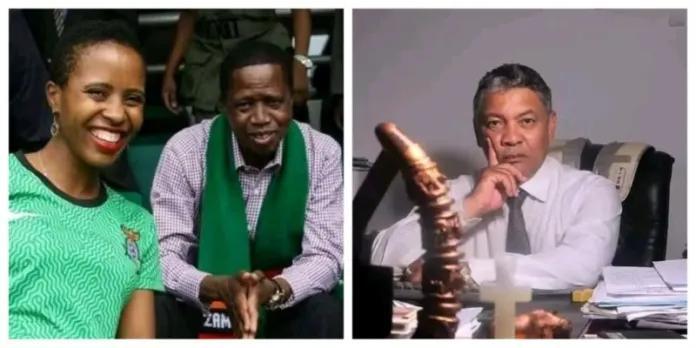Africa-Press – Zambia. The Patriotic Front is entering dangerous terrain. Lungu’s burial limbo has triggered a new wave of internal conflict, just as the clock ticks toward the 2026 elections. Under the party mourning lies a power struggle. At its centre is a name that sparks loyalty, and stirs resentment in equal measure, Tasila Lungu.
Given Lubinda, the acting faction president, has urged presidential hopefuls to put their ambitions on hold. His message was delivered on KBN TV with moral authority: “My boss is still above earth.” The intention was clear i.e. unity in grief, discipline in transition. But there is a problem. Family lawyer Makebi Zulu has repeatedly said Lungu’s burial could take years, possibly a decade.
The former president’s body remains in a South African mortuary while the court battle over his repatriation drags on without a set date. If PF postpones its leadership contest until after burial, it risks entering the 2026 elections without a candidate or a plan.
Lubinda’s call, though grounded in respect, has become a political trap.
Behind the scenes, pressure is building. A faction within the party is pushing for Tasila to carry her father’s mantle into the presidential race. They argue that only she can preserve Lungu’s legacy and rally the grassroots. For them, the Lungu name remains the party’s strongest brand. But that view is not shared across the board. Rivals who had quietly begun preparing their bids feel sidelined. They see the move as a shortcut around internal democracy, a throwback to dynastic politics the PF once stood against.
“This is not a monarchy,” said one senior PF figure, off the record. The statement reflects more than frustration. It captures the anxiety of a party that fears it is repeating the very patterns it once vowed to break.
There is also a deeper concern. While internal camps argue over names and allegiances, the party has yet to answer the fundamental question: what does PF offer Zambians today? Beyond the symbolism of a surname, what is the agenda? What are the measurable promises on energy security, agricultural reform, debt management, or youth employment?
The silence on substance is deafening.
Tasila’s potential candidacy has drawn attention, but it also exposes a vacuum. PF has not presented a new platform since its defeat in 2021. Instead, it has leaned on court battles, nostalgic rhetoric, and media outbursts. That might excite the base, but it leaves swing voters cold. It also hands UPND a key advantage. Despite the government’s struggles with electricity and service delivery, PF has failed to build a credible alternative that speaks to undecided voters.
Miles Sampa’s decision to admit that his convention was illegal opens the door to a national gathering. That meeting could be a turning point. If it produces a credible programme, followed by a fair leadership process, PF can walk into 2026 with a message that speaks to today’s realities. If not, it will walk in as a party of factions, nostalgia, and entitlement; hoping that public anger at UPND will be enough.
But hope is not a strategy.
PF does not have the luxury of confusion. Every day lost to infighting is a day closer to defeat. Every attempt to crown a successor without a platform only weakens the eventual candidate. If Tasila Lungu enters the race, she will need more than her last name. She will need answers. If she stays silent, and the party remains rudderless, PF may soon learn the cost of mistaking legacy for leadership.
For More News And Analysis About Zambia Follow Africa-Press







